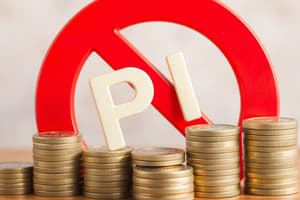Podcast
Questions and Answers
What two types of surveys are used to measure increases in the cost of living?
What two types of surveys are used to measure increases in the cost of living?
- Price survey and family expenditure survey (correct)
- Price survey and income expenditure survey
- Family expenditure survey and Consumer Price Index
- Price survey and Consumer Price Index
Which of the following is NOT a reason that high and volatile inflation makes long-term business planning difficult?
Which of the following is NOT a reason that high and volatile inflation makes long-term business planning difficult?
- Fluctuating prices make it difficult to predict future costs and profits.
- High inflation can create an uncertain economic environment, making it difficult to plan for the future.
- Constant price increases make it difficult to determine the value of investments. (correct)
- Inflation can lead to a decrease in the value of money over time, making it difficult to forecast future sales.
Which of the following statements about the Consumer Price Index (CPI) is TRUE?
Which of the following statements about the Consumer Price Index (CPI) is TRUE?
- CPI is the only measure of inflation used by the UK government.
- CPI is a government target set at 2% annually.
- CPI is a measure of the general level of prices in the UK, based on a basket of commonly purchased goods and services. (correct)
- CPI includes the cost of all goods and services consumed by households in the UK.
Which of the following BEST describes how inflation affects consumers?
Which of the following BEST describes how inflation affects consumers?
How does the Retail Price Index (RPI) differ from the Consumer Price Index (CPI)?
How does the Retail Price Index (RPI) differ from the Consumer Price Index (CPI)?
What is the primary role of the Monetary Policy Committee (MPC) in relation to inflation?
What is the primary role of the Monetary Policy Committee (MPC) in relation to inflation?
What is a key consequence of unstable inflation on businesses?
What is a key consequence of unstable inflation on businesses?
What is the primary reason why inflation can distort the price mechanism?
What is the primary reason why inflation can distort the price mechanism?
How does inflation affect consumers on fixed incomes?
How does inflation affect consumers on fixed incomes?
What can be a consequence of rising prices due to inflation?
What can be a consequence of rising prices due to inflation?
What is the wage-price spiral?
What is the wage-price spiral?
Which type of inflation occurs when demand exceeds supply?
Which type of inflation occurs when demand exceeds supply?
What measures can be employed to control inflation?
What measures can be employed to control inflation?
Which of the following best describes deflation?
Which of the following best describes deflation?
What primary index is used to measure inflation in an economy?
What primary index is used to measure inflation in an economy?
Which of the following is a consequence of inflation?
Which of the following is a consequence of inflation?
What typically drives cost-push inflation?
What typically drives cost-push inflation?
What could result from a fall in aggregate demand due to inflation?
What could result from a fall in aggregate demand due to inflation?
Flashcards
Inflation
Inflation
The rate at which the general price level of goods and services increases over a period of time, typically a year.
Consumer Price Index (CPI)
Consumer Price Index (CPI)
A weighted average of prices of a basket of consumer goods and services, used to measure changes in the general price level.
Inflation Target (UK)
Inflation Target (UK)
The target inflation rate set by the UK government, designed to maintain a stable economic environment.
Monetary Policy Committee (MPC)
Monetary Policy Committee (MPC)
Signup and view all the flashcards
Cost of Living Increase
Cost of Living Increase
Signup and view all the flashcards
Opportunity Cost of Holding Money
Opportunity Cost of Holding Money
Signup and view all the flashcards
Distortion of Price Mechanism
Distortion of Price Mechanism
Signup and view all the flashcards
Business Planning Challenges under High Inflation
Business Planning Challenges under High Inflation
Signup and view all the flashcards
Fixed Incomes and Inflation
Fixed Incomes and Inflation
Signup and view all the flashcards
Wage-Price Spiral
Wage-Price Spiral
Signup and view all the flashcards
Inflation's Impact on Global Competitiveness
Inflation's Impact on Global Competitiveness
Signup and view all the flashcards
Demand-Pull Inflation
Demand-Pull Inflation
Signup and view all the flashcards
Cost-Push Inflation
Cost-Push Inflation
Signup and view all the flashcards
Built-in Inflation
Built-in Inflation
Signup and view all the flashcards
Monetary Policy
Monetary Policy
Signup and view all the flashcards
Study Notes
Inflation
- Inflation is the rate of change in the general price level over time.
- A healthy economy has a stable, constant inflation rate.
- Cost of living increases are tracked using a weighted basket of goods and services.
- Price surveys and family expenditure surveys collect data for this.
- The Consumer Price Index (CPI) measures UK price levels using a basket of 650 common household goods.
- The UK government uses CPI to target a 2% inflation rate since 2004.
- CPI excludes pensioner and extreme income households.
- Inflation is calculated as the percentage change in the CPI over time.
- Retail Price Index (RPI) also measures inflation based on retail goods and services.
- RPI includes more variables (e.g., council tax, mortgage repayments) than CPI.
- Inflation's negative effects:
- Reduced purchasing power of money
- Reduced investment and economic growth
- Increased uncertainty
- Inflation's positive effects:
- Increased demand
- Increased employment opportunities
- Increased economic output
Measuring Inflation
- Inflation is usually measured by tracking changes in the Consumer Price Index (CPI).
- CPI tracks price changes based on a specific selection of goods and services.
Types of Inflation
- Demand-pull inflation happens when demand surpasses supply.
- Cost-push inflation occurs due to increasing production costs.
- Built-in inflation is when price increases are expected and factored into wages and prices.
Deflation
- Deflation is a sustained decrease in the general price level.
Controlling Inflation
- Inflation can be controlled through monetary policy (e.g., adjusting interest rates), fiscal policy (e.g., taxation and government spending), and supply-side policies (e.g., deregulation and investment in technology).
Effects of Inflation
- Menu Costs: Businesses must constantly adjust price lists.
- Time Consuming: Consumers need more time for price research.
- Opportunity Cost of Money: Inflation increases the opportunity cost of holding onto money.
- Distortion of Price Mechanism: Insufficient price level information leads to poor resource allocation.
- Business Planning: High and volatile inflation hinders long-term planning.
- Fixed Incomes: Consumers on fixed incomes lose purchasing power.
- Global Competitiveness: Higher prices make exports less attractive. Increased imports are cheaper alternatives, decreasing aggregate demand and employment
Summary Points
- Inflation is measured by changes in price level.
- Inflation impacts many aspects of the economy, from the cost of basic goods to the stability of investments.
- The UK government directly manages inflation.
- Several factors contribute to inflation, and understanding causes is essential for economic management.
Studying That Suits You
Use AI to generate personalized quizzes and flashcards to suit your learning preferences.




